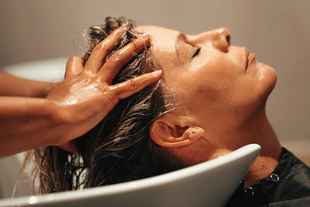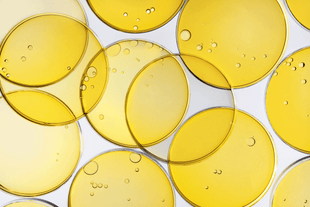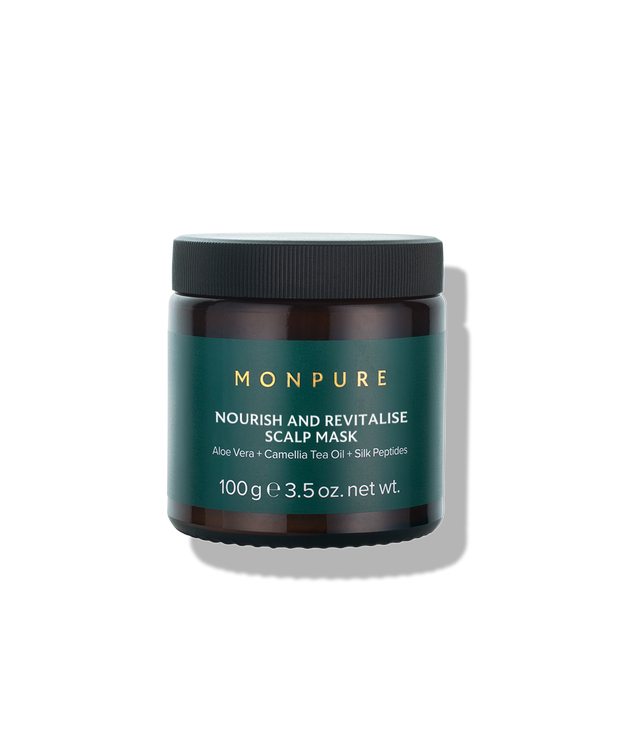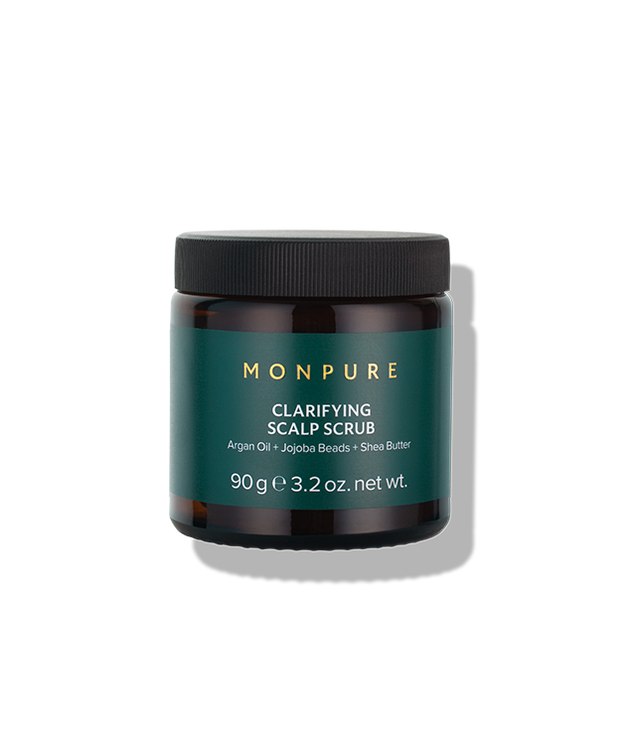All About Scalp Acne
Did you know that acne, which affects 85% of women in their lifetimes, extends beyond the face and can affect the scalp? As a scalp and hair health brand, MONPURE is here to arm you with the science and treatment solutions for all of your scalp woes, including scalp acne. As the scalp is the hair’s incubator and the environment for healthy hair growth, it is important that we target and treat the scalp as the foundation for hair health.
Although acne is less common on the scalp, it can be equally as troublesome and can contribute to a host of issues that impede scalp and hair health.

What is Scalp Acne?
Scalp acne refers to breakouts and pimples that develop on the scalp or hairline. It arises when hair follicles become clogged or congested with excess sebum (oil) or dead skin cells. This congestion leads to inflammation in the hair follicle, and the formation of bumps, whiteheads or blackheads on the scalp.
Sebum is the natural oily, waxy substance that is secreted by the sebaceous glands that are connected to hair follicles via follicular ducts. While sebum forms part of an essential moisturising and protective layer on the scalp, excess sebum production can result in an oily scalp, scalp acne and a variety of other scalp conditions.
Causes of Scalp Acne
There are several causes and contributors to the development of scalp acne:
- Excess sebum production - While sebum moisturises the scalp, too much can clog follicles.
- Infrequent hair washing - Allowing buildup of oil, sweat and dirt.
- Hair products - Heavy products and those containing harsh chemicals can irritate and clog follicles.
- Bacteria and fungi overgrowth - Microbes like Propionibacterium acnes thrive on an unbalanced scalp and compound acne development.
- Hormonal changes - Fluctuating androgen hormones increase sebum production.
Types of Scalp Acne
Pimples may occur anywhere on the scalp but are most common along the hairline and side of the temples. The severity can range from mild to quite inflamed:
- Mild: Development of whiteheads or blackheads on the scalp, which arise as a result of clogged pores or follicles.
- Moderate: A high number of inflamed pimples called papules that are visible on the surface of the scalp. Moderate scalp acne may even result in pustules, which are large pimples that contain a yellowish pus.
- Severe: This form of acne manifests in many papules and pustules and can even develop nodules and cysts, which can be very painful and sensitive to the touch.
What to Avoid if You Have Scalp Acne

How to Treat Scalp Acne
The first step to curbing your scalp acne is switching out your heavy, sulphate and silicone-based hair products for lightweight, high-performance natural ingredients. These harsh and heavy formulas may be contributing to hair follicle congestion and build-up, resulting in scalp breakouts.
The key solution to scalp acne is introducing scalp exfoliation into your routine. Not only does exfoliation sweep away the build-up and dead skin cells that are clogging your follicles, boost cellular renewal and soften the scalp-skin; exfoliation allows other ingredients and treatments to deeply penetrate into the scalp and work more effectively. Scalp acne can be treated with both physical and chemical exfoliation, with each method having its own incredible benefits…
Physical Exfoliation
Just like the skin, a healthy scalp microbiome requires a symbiosis of healthy bacteria and yeast, but can go awry when thrown off balance. Natural scalp scrubs cultivate a healthy scalp microbiome. Along with ridding the scalp of nasty build-up, exfoliation also primes the scalp for the absorption of other active ingredients that support scalp and hair health.
Physical exfoliation refers to the manual process of dislodging and unclogging debris, sebum and build-up from the follicles with the use of small beads. MONPURE’s Clarifying Scalp Scrub is a kind, moisturising physical exfoliant that is perfect for alleviating scalp acne.
It uses biodegradable jojoba beads to gently slough away build-up, sebum and residue from the surface of the scalp while also polishing and refining the scalp’s texture. Argan oil and shea butter work to regulate moisture on the scalp and regenerate the surface to boost overall scalp health.
MONPURE Expert Tip: Use the Clarifying Scalp Scrub as a weekly treatment to break down the oil and product build-up that shampoo misses. This will allow you to extend your hair wash cycle while also ensuring your scalp remains balanced, clean and healthy.
Chemical Exfoliation
Chemical exfoliation refers to the process of using acids or enzymes to loosen up the dead skin cells, sebum and build-up that contribute to scalp acne on a cellular level. Three of the gold-standard, acne-busting chemical exfoliants are retinol, lactic acid (AHAs) and salicylic acid (BHAs), all of which can be found in MONPURE’s results-driven range.
As a derivative of Vitamin A, retinoids such as retinyl palmitate aid in decongesting follicles, rebalancing the scalp and regulating sebum production. Lactic acid, which is a alpha hydroxy acid (AHA) exfoliates the surface of the scalp, decongests hair follicles and holds antibacterial properties to ward off the microbes that lead to scalp acne. Retinol and lactic acid can be found in MONPURE’s Follicle Boost Hair Density Serum.
Salicylic acid is a hero ingredient for acne-prone skin. This beta hydroxy acid (BHA) is oil soluble, meaning it can deeply penetrate the scalp and break down the bonds between dead skin cells. Salicylic acid is also keratolytic, meaning it aids in exfoliation and soothes inflammation. Salicylic acid can be found in MONPURE’s Hydrate and Soothe Scalp Serum.
MONPURE Expert Tip: based on your scalp and hair concern, use your favourite MONPURE serum as a daily, targeting spot treatments to boost scalp health, alleviate inflammation, promote healthy hair growth and fight against bothersome scalp acne.
How to Prevent Scalp Acne
- Wash hair frequently
- Use clarifying shampoo 1-2 times per week
- Apply scalp treatments with exfoliating acids
- Keep scalp moisturised
- Avoid harsh chemicals in hair products
Scalp acne is definitely a bothersome and uncomfortable experience that affects many people, however, it can be effectively treated and prevented with powerful, natural ingredients that rebalance and maintain the health of the scalp. Opting for physical or chemical exfoliation solutions is the perfect way to ensure your scalp stays happy and healthy.

Frequently Asked Questions
What causes blackheads on the scalp?
Blackheads, also called open comedones, happen when dead skin cells, oil (sebum), and bacteria clog up a hair follicle. The contents of blackheads are exposed to air which causes it to look black. Too much oil production, not washing hair often enough, skin cell buildup, and bacteria can all cause blackheads on the scalp.
Why do I have spots on my scalp?
Spots or pimples on the scalp are a form of acne. They happen when a hair follicle gets congested with too much sebum, dead skin cells or product residue. The clogged follicle becomes inflamed and a raised red bump, whitehead or blackhead occurs. Hormonal fluctuations, poor hair washing habits, yeast overgrowth or reaction to hair products can trigger spots on the scalp.
Does greasy hair cause acne on the scalp?
Yes, excessively oily hair can contribute to acne on the scalp. Greasy hair indicates your scalp is producing too much sebum. This oil, combined with dead skin cells or product buildup can clog hair follicles. The congested and inflamed follicle results in pimples or blemishes on the scalp. Keeping hair clean via regular shampooing helps prevent an overproduction of oil that leads to clogged pores and acne.

















